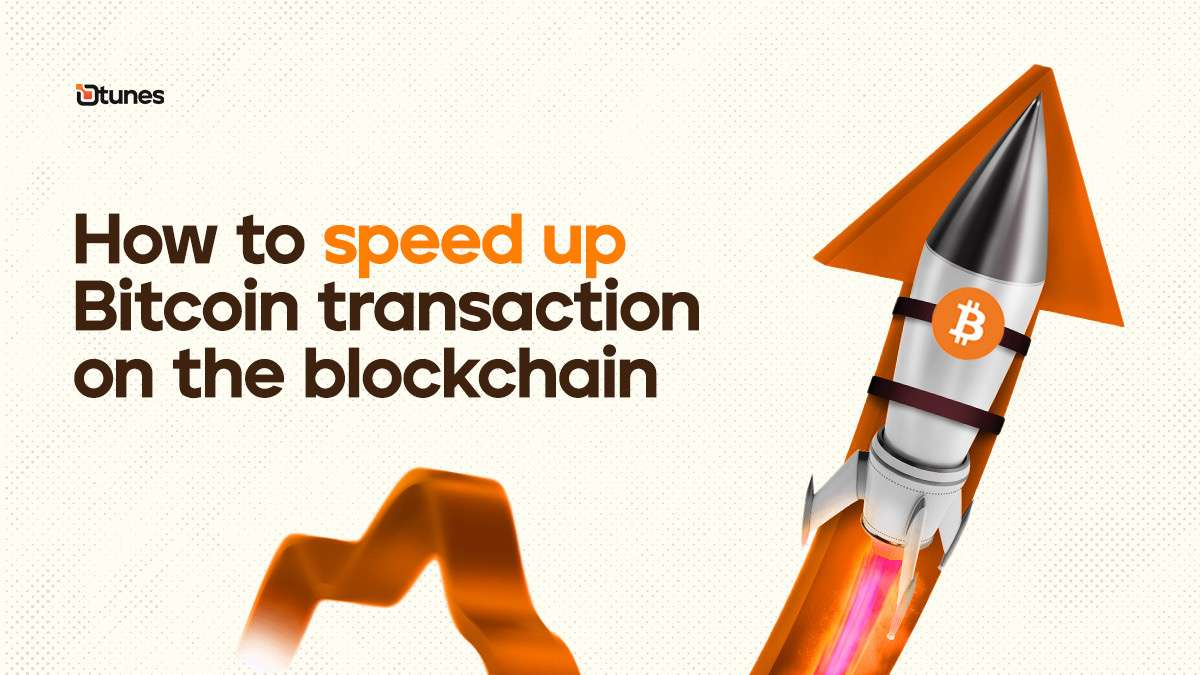
How to Speed Up Bitcoin Transaction On The Blockchain
Speed Up Bitcoin Transaction: In the fast-paced world of cryptocurrency, waiting for a Bitcoin transaction to be confirmed on the blockchain can be a daunting experience.
Have you ever tried to send Bitcoin, only to find out that your transaction is stuck or taking hours (sometimes days) to go through?
You’re not alone because this is something many people experience. But don’t worry — in this guide, you’ll learn why Bitcoin can be slow sometimes, and most importantly, how to speed up your Bitcoin transaction like a pro.
If this looks like what you’re interested in, don’t go anywhere.
Why Do Bitcoin Transactions Get Stuck?
Bitcoin works on a network called the blockchain, where transactions need to be confirmed by miners before they go through.
But here’s the catch:
Only a limited number of transactions can fit into each “block”. So when the network is busy (which can translate to lots of people sending BTC at once), some transactions get delayed.
Each block:
- Is created about every 10 minutes
- Can only hold about 2,000–2,500 transactions
- Prioritizes transactions with higher fees
So if your transaction has a low fee, it might get left behind while faster (higher fee) ones go first. Think of it like people cutting in line with VIP tickets.
Speed Up Bitcoin Transaction
The decentralized nature of blockchain technology, while offering security and transparency, also presents challenges when it comes to transaction speed. Fortunately, there are several strategies and techniques to expedite Bitcoin transactions and minimize confirmation times. In this article, we will explore various methods to speed up Bitcoin transactions on the blockchain.
Understanding Bitcoin Transaction Confirmation

Before delving into the methods to accelerate Bitcoin transactions, it’s essential to grasp the concept of transaction confirmation. When a user initiates a Bitcoin transaction, it enters a pool of unconfirmed transactions. Miners select transactions from this pool to include in the next block they mine. Once a transaction is added to a block and the block is added to the blockchain, it is considered confirmed. The time taken for this process to occur is known as confirmation time.
Use a Higher Transaction Fee

One of the primary factors influencing transaction speed is the transaction fee. Bitcoin transactions with higher fees are prioritized by miners because they are financially incentivized to include transactions with more significant fees in the blocks they mine. To speed up your Bitcoin transaction, consider adjusting the transaction fee based on the current network congestion. Websites like “mempool.space” provide real-time data on the current state of the Bitcoin mempool, allowing users to gauge the appropriate fee for faster transaction processing.
When sending Bitcoin, you usually have a chance to set the network fee (also called the miner fee). The higher the fee, the faster your transaction gets picked by miners.
What to do:
- If your wallet allows it, choose “Fast”, “Priority”, or “Custom fee” when sending.
- If you’re not in a rush, you don’t have to select priority, but keep in mind it may take longer.
Utilize Segregated Witness (SegWit)

Segregated Witness, or SegWit, is a protocol upgrade implemented to address Bitcoin’s scalability issues. By separating transaction signatures from transaction data, SegWit reduces the size of transactions, allowing more of them to fit into a single block. Wallets that support SegWit generate transactions with SegWit addresses, which are more efficient and result in lower fees and faster confirmation times. Transitioning to a SegWit-enabled wallet can significantly speed up Bitcoin transactions.
Opt for the Lightning Network

The Lightning Network is a layer-2 scaling solution designed to enhance the scalability of Bitcoin by facilitating off-chain transactions. By opening payment channels off the main blockchain, users can transact with each other instantly and at a lower cost. Lightning Network transactions do not require confirmation on the main blockchain for each transaction, making it an ideal solution for microtransactions and frequent, fast-paced transactions. Integrating Lightning Network-compatible wallets and services can expedite Bitcoin transactions and reduce fees.
Use Replace-by-Fee (RBF) If Your Transaction Is Stuck

Replace-By-Fee (RBF) is a feature that allows users to replace an unconfirmed transaction with a new one that includes a higher fee. This feature is particularly useful when a user realizes they have set a lower fee than necessary for timely confirmation.
Replace-by-Fee (RBF) is a feature that lets you send the same transaction again, but this time, with a higher fee to speed it up.
Before you proceed to send your transaction using RBF, here are a few things to note:
- Your wallet must support RBF (many modern wallets do: like Electrum, BlueWallet, etc.)
- When sending, make sure RBF is turned on
- If the transaction gets stuck, go back and bump the fee to resend it with a higher priority
This works only if RBF was enabled when you first sent the BTC
In summary, RBF-enabled wallets provide users with the flexibility to adjust transaction fees even after initiating a transaction. However, it’s important to note that not all wallets support RBF, and enabling it may not be advisable for all transactions.
Be Mindful of Peak Times

Bitcoin network activity can vary throughout the day, with peak times experiencing higher congestion and slower confirmation times. By strategically choosing when to initiate transactions, users can potentially avoid periods of network congestion. Monitoring historical data on network activity can help users identify optimal times for faster and more cost-effective transactions.
Conclusion
While Bitcoin’s decentralized nature inherently introduces some latency in transaction processing, users can employ various strategies to speed up transactions on the blockchain. From optimizing transaction fees to embracing advanced solutions like SegWit and the Lightning Network, the cryptocurrency community continues to innovate to enhance the efficiency of Bitcoin transactions. By staying informed and adopting the right practices, users can navigate the complexities of the blockchain and experience faster and more reliable Bitcoin transactions.
Tobi brings stories to life as the Content Writer and Creator at Dtunes, blending creativity with strategy to connect with audiences. When she’s not crafting content, you’ll find her traveling, meeting new people, or trying out exciting things.



![[elementor-template id="6995"]](https://dtunes.ng/blog/wp-content/uploads/2024/08/Latest-DtunesjArtboard-1-copy-41-768x432.jpg)
